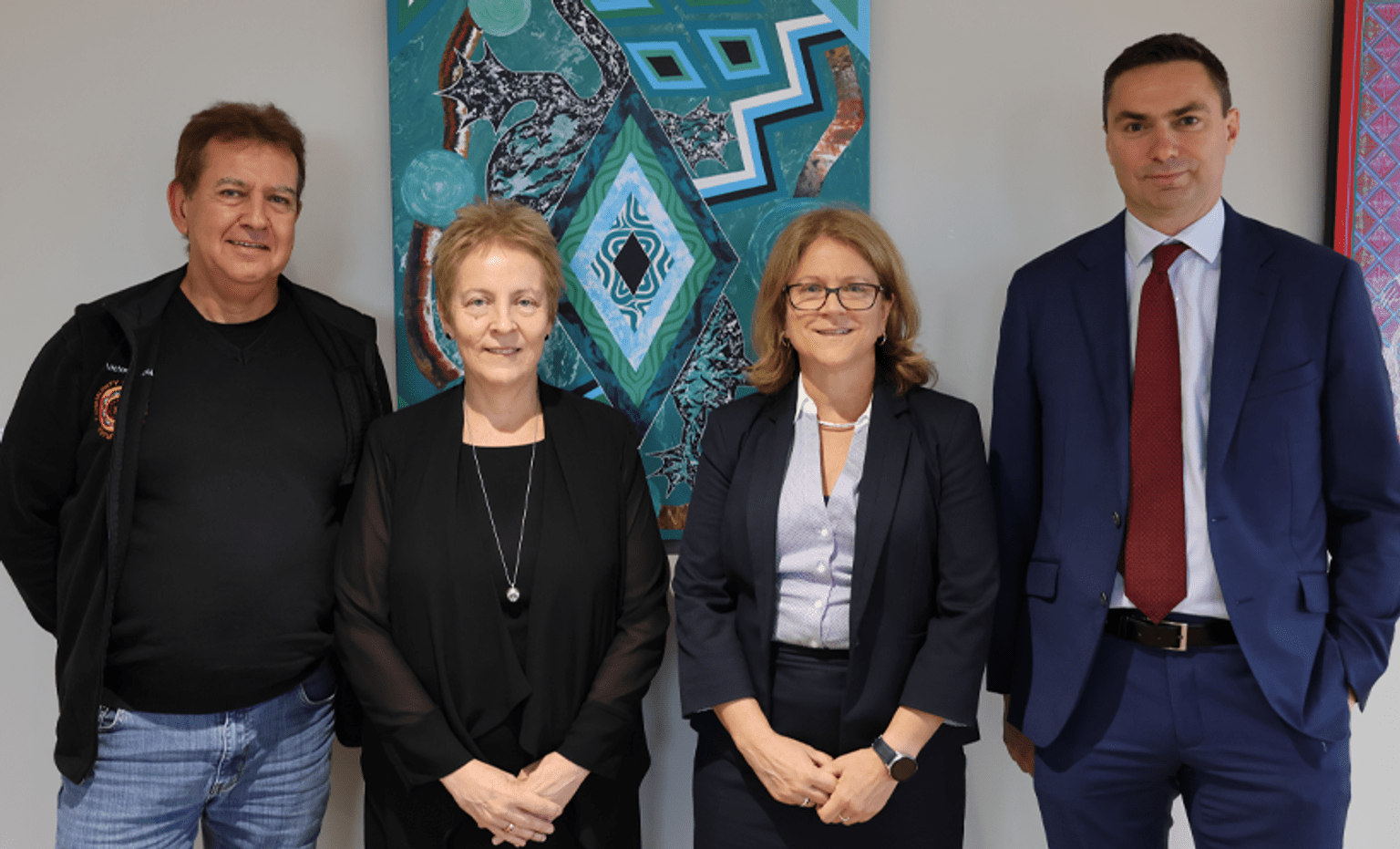- Published:
- Thursday 15 December 2022 at 2:03 pm

Victoria’s criminal justice and child protection systems need both urgent reform and transformative change to address the far-reaching and intergenerational harms caused to First Nations people, representatives from Victoria Legal Aid have told the Yoorrook Justice Commission.
‘From our practice experience in court every day and every night, in almost every court across Victoria, we see that the criminal justice and child protection systems are failing First Nations communities and perpetuating disadvantage and disempowerment,’ said our Chief Executive Officer, Louise Glanville.
We believe the Yoorrook Justice Commission presents a collective opportunity to consider different ways to achieve long-lasting change, founded on principles of true self-determination.
‘First Nations people should decide what is best for them and their communities and make decisions about issues that impact and affect them. We should all support this transformation recognising that many of the issues that have been raised are well known and have been the subject of recommendations for decades,’ said Ms Glanville.
‘Transformation also requires new ways of working and new systems in the context of treaty and self-determination.’
‘We must have First Nations peoples involved in leading, designing and implementing these new systems if they are to be transformative. Self-determination requires control by First Nations communities.’
In our submissions to the commission and in evidence today, we have identified priority changes that need to be urgently implemented, while First Nations communities lead a process to develop visionary and transformative change.
Addressing the harms caused by the criminal justice system
Every day we see the persistent harms caused to First Nations children and adults in the criminal justice system, including disproportionate rates of remand and imprisonment and deaths in custody.
‘These harms are a consequence of centuries of laws, policies, systems and structures that have entrenched systemic and structural racism,’ said our Associate Director, Aboriginal Services, Lawrence Moser.
Priority reforms which have been identified through successive inquiries and reports should be urgently implemented and include:
- raising the age of criminal responsibility to 14
- reforming the bail act, including measures to address the disproportionate number of First Nations women held on remand
- implementing the public health response and completing the process of decriminalisation of public intoxication
- improving police accountability and oversight
- creating an Aboriginal social justice commissioner to monitor and oversee implementation of reform priorities.
‘We need these urgent changes to address the number of First Nations people on remand and the failure of the current system to properly address the risks they experience,’ said our Executive Director, Criminal Law, Dan Nicholson.
‘However, it is crucial to also aim for transformational and structural reform of the criminal justice system through Victoria’s Treaty process, not just mitigation.’
A new self-determined approach to child protection
Despite recent changes designed to improve connection to culture and outcomes for First Nations children, Victoria’s child protection system continues to perpetuate grievous harm to First Nations families and communities through the continued removal of children.
‘Through our daily work we observe a large power imbalance and lack of trust between Child Protection and First Nations families,’ said our Executive Director, Family, Youth and Children’s Law, Joanna Fletcher.
‘Parents often tell us that it feels like they are under surveillance and are not listened to or offered the help they need by Child Protection. This is more pronounced for First Nations families, due to the trauma of past and ongoing child removals, economic inequality, and structural racism.’
We recommend urgent reforms to enhance fairness and support families to stay together, including:
- reinstating the Children’s Courts ability to make orders in the best interests of children without time-limits on reunification
- establishing specialist Children’s Courts state-wide, including Marram Ngala Ganbu
- expanding state-wide access to independent non-legal advocacy for families in the child protection system
- meaningfully implement and build accountability measures into the government’s framework to reduce the criminalisation of children in residential care.
We are pleased that the Premier has acknowledged that too many First Nations children are being taken away from their families by the state, and the need for greater self-determination and Aboriginal control in the child protection system.
'Very different governance and implementation models are needed in the context of Treaty and self-determination if this reform is to be achieved,’ Ms Glanville said.
Self-determination is key
Through the development of our submissions and in our daily work we acknowledge the expertise and leadership of Aboriginal Community Controlled Organisations in the justice and child protection systems.
Our colleagues at the Victorian Aboriginal Legal Service, Djirra and other organisations have given compelling evidence to the commission about the need for both urgent and transformative reform.
‘We acknowledge that self-determination is a matter for First Nations communities and the process of furthering self-determination in justice must be led by them. We support this process,’ said Ms Glanville.
More information
Read our submissions to the Yoorrook Justice Commission.
Media enquiries
For media enquiries please contact Naomi Woodley, Manager, Media, Communications and Engagement on 0409 281 304 or naomi.woodley@vla.vic.gov.au
Updated

